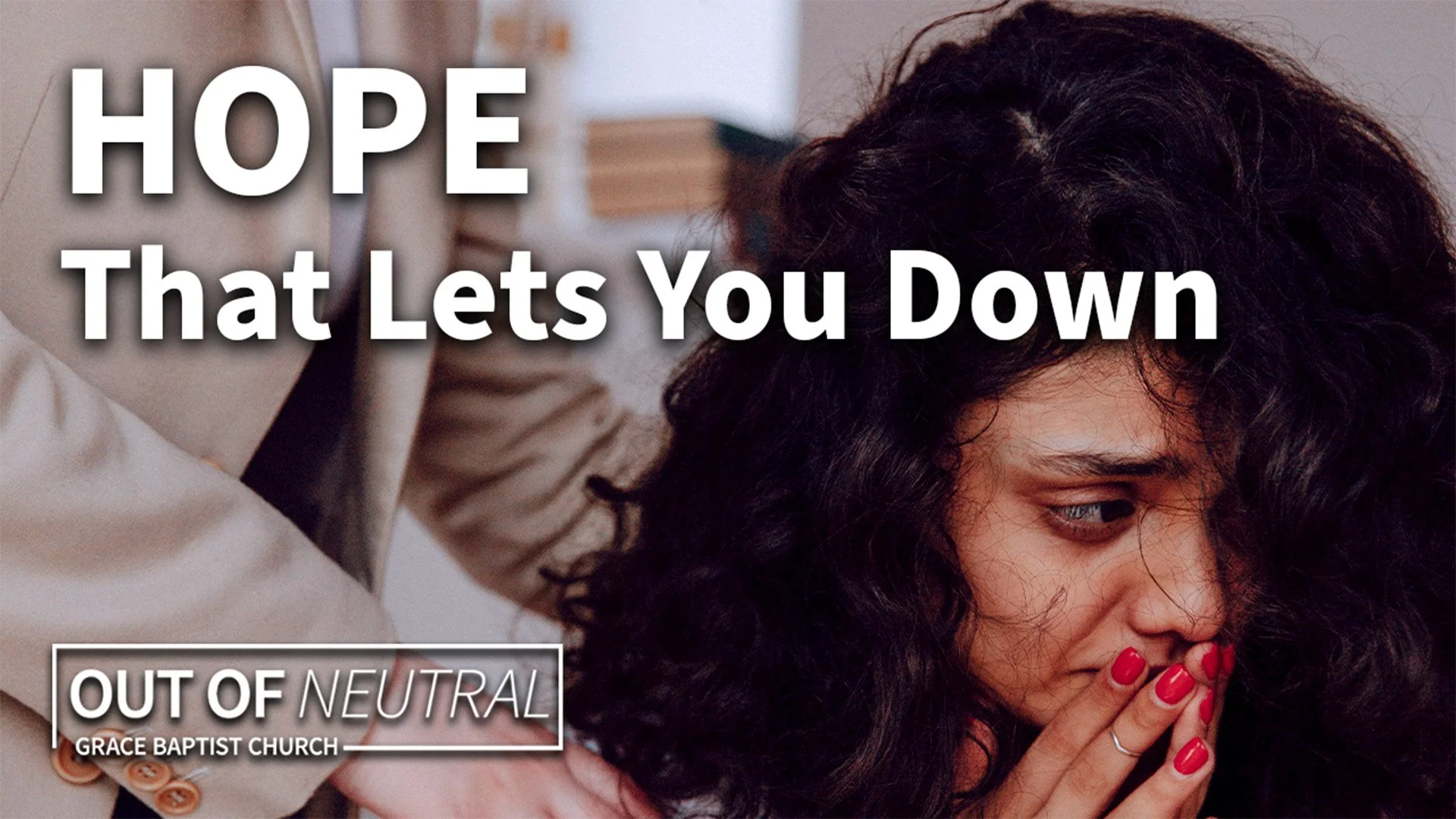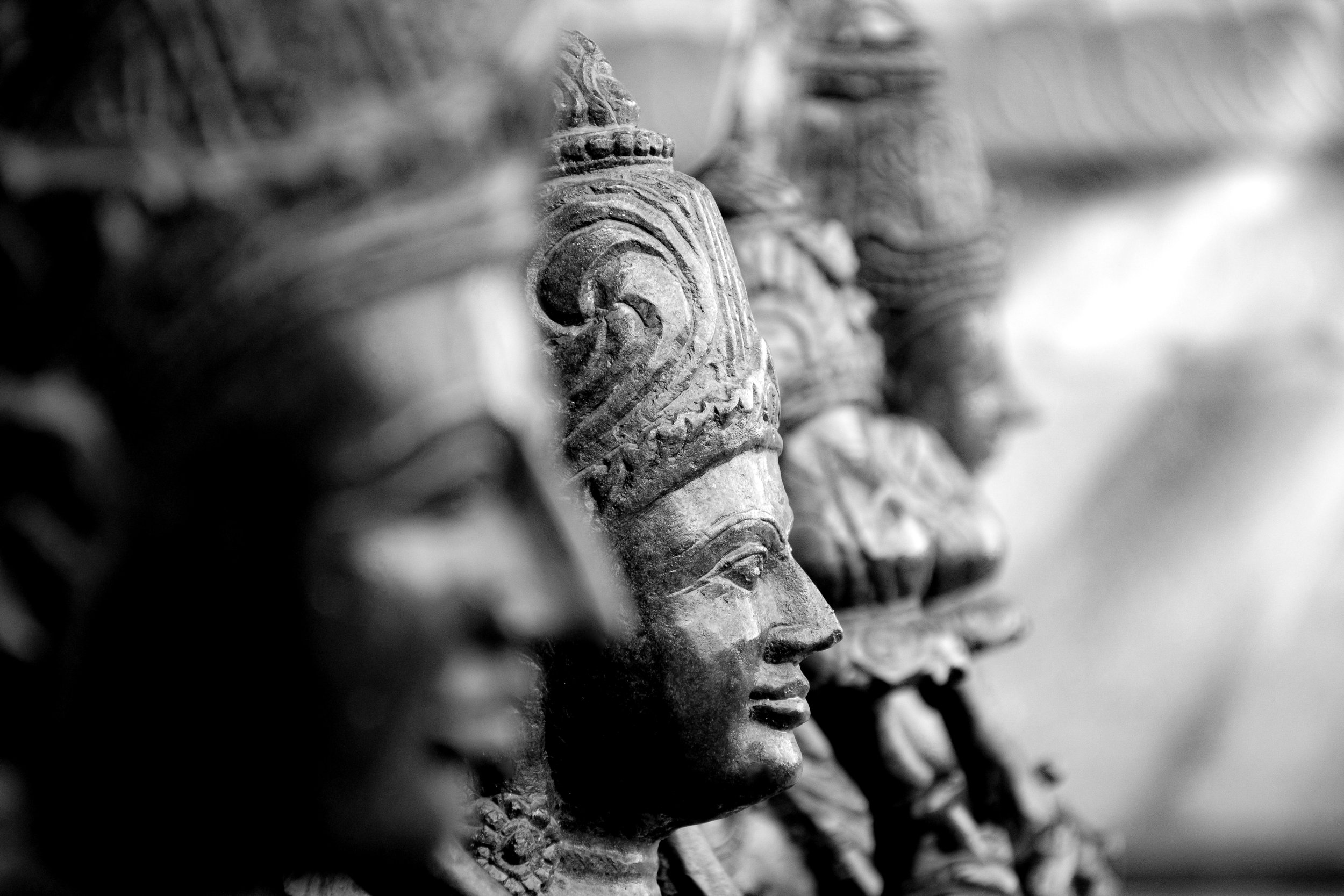I think we often view hope the same we do gasoline: it helps us move so we don’t care much about where it comes from. Like caffeine: it picks us up, so we don’t stop to think about its source.
But hope isn’t neutral. There are many things we hope in that end in huge disappointment and even painful consequences. They leave people feeling hopeless. Or they’re afraid to hope for fear of being let down. Is cynicism the answer?
The Bible takes a cautious perspective on hope that teaches people to carefully evaluate what they’re counting on. But the principles can get lost in the language because they usually show up in discussions of idolatry.
People in ancient cultures were often lured by the hope offered by counterfeit gods. Today, we’re more likely to hope in politicians and people, ideologies and tradition, comfort and technology. Even people who say that they hope in God often hope in things that God never promises: a perfect family, a pain-free life, or a successful career. All of these can become false gods to us, and we struggle to let them go.
Consider the dangers of putting your trust in false hope.
1. A false hope will lead you down dangerous paths
There are lots of people offering lots of advice. And we can hear certain messages so often we begin to think they must be true. But a false hope will take us on a detour.
Jeremiah 18:15 says, “my people have forgotten me; they make offerings to false gods; they made them stumble in their ways, in the ancient roads, and to walk into side roads, not the highway.”
Are the voices that you’re leaning on leading you closer to God or farther away?
2. A false hope will eventually control your life in unhealthy ways
False hope usually advertises itself as a path to freedom. Money promises freedom from restrictions. Alcohol promises freedom from worries. Pornography offers freedom from loneliness. But when we put our hope in a false god it eventually traps us in addiction.
Galatians 4:8 puts it like this: “Formerly, when you did not know God, you were enslaved to those that by nature are not gods.”
Is there something in your life that has an unhealthy control in your life?
3. A false hope will shape you into its image
People say, “You are what you eat,” but according to the Bible, we are becoming what we hope in.
In speaking of idols, Psalm 115:8 says, “Those who make them become like them; so do all who trust in them.”
Consider the people on whose words you hang. Are you comfortable becoming more like them?
4. A false hope will let you down when judgment comes
Some people project rivalry or ambition onto God when he warns about idols, but the reality is that He’s motivated by mercy toward us. He wants to spare us grief.
Jeremiah 11:12, for instance, warns: “the inhabitants of Jerusalem will go and cry to the gods to whom they make offerings, but they cannot save them in the time of their trouble.”
Is what you’re putting your hope in able to rescue you from God’s judgment?
The Good News of the Bible is that there is a true God who offers secure hope. His guidance in our lives is always true. The more we submit to Him, the more He frees us to be who we were created to be. He shapes us into His image, but His image is glorious. And He’s the only One whose pardon can spare us from the judgment to come. As you focus your hope in Him, the false hope of this world loses its power in our lives.
In awe of Him,
Paul














